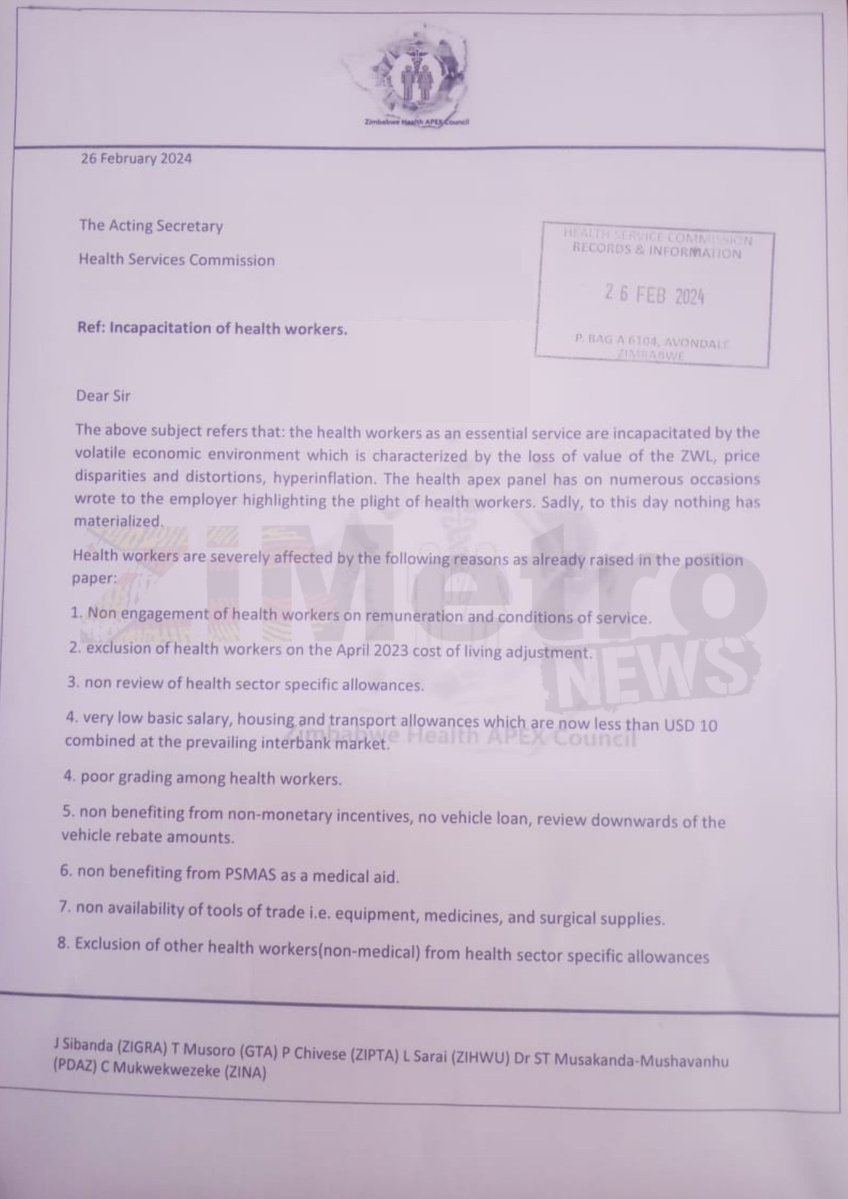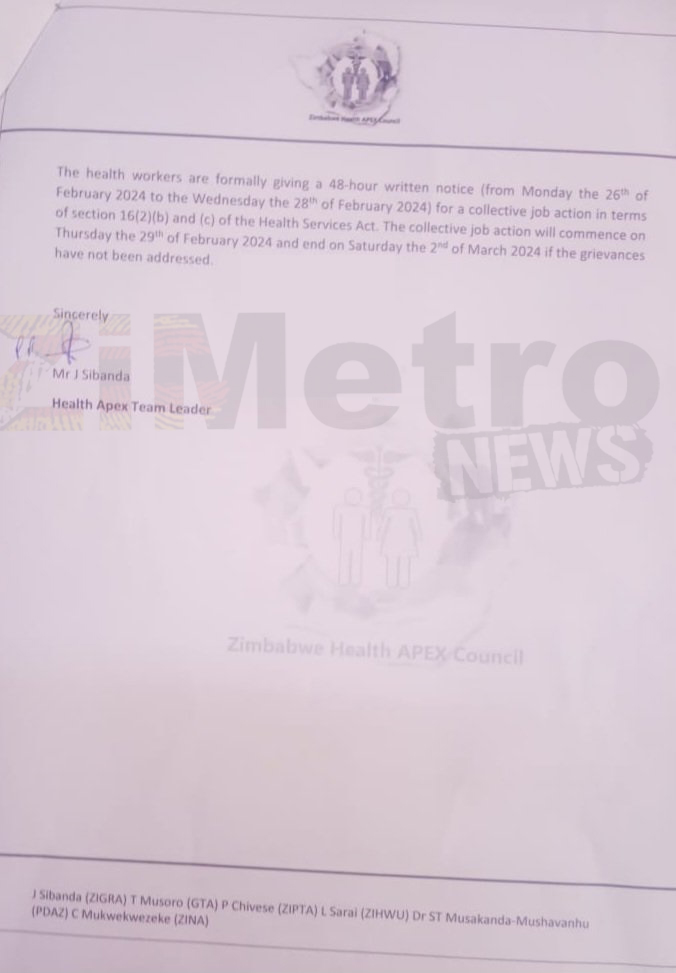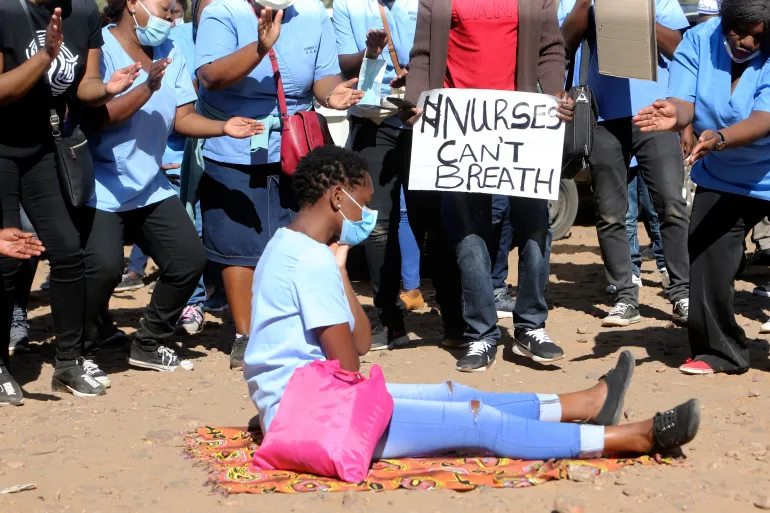Zimbabwe HealthCare Workers Threatens Strike!
Zimbabwe’s healthcare system is on the brink of a major crisis as health workers threaten to go on strike from February 29th to March 2nd. The Health Apex Council, representing health professionals in the country, has issued a stern warning to the Health Service Commission, stating that the strike will proceed if their longstanding grievances regarding inadequate salaries are not addressed.
In a letter addressed to the Health Service Commission, the Health Apex Council highlighted the dire situation facing health workers, emphasizing that they are incapacitated by the current economic conditions prevailing in the country.
The council underscored the essential role of health workers in providing crucial services to the public and stressed that their inability to meet basic needs due to insufficient salaries is untenable.
The grievances of health workers in Zimbabwe are not new, with issues related to low wages and poor working conditions persisting for years. Despite numerous appeals and engagements with relevant authorities, including the Health Service Commission, health professionals have seen little improvement in their plight.
The looming strike, if it materializes, could have severe repercussions for the healthcare sector and the general population. With health workers withdrawing their services, hospitals and clinics would struggle to provide adequate care to patients, exacerbating an already strained healthcare system.


Furthermore, the timing of the potential strike amidst the ongoing challenges posed by the COVID-19 pandemic adds another layer of concern. The absence of healthcare workers during a public health crisis could further strain efforts to contain the spread of the virus and provide treatment to those affected.
Also read: How Zimbabwe Is Losing Money to Shadow Firms Like Linash Enterprises
The Health Apex Council’s ultimatum underscores the urgency of addressing the grievances of health workers and implementing tangible solutions to improve their working conditions and remuneration. Failure to do so not only risks disrupting essential healthcare services but also undermines the well-being of both healthcare workers and the general population.
As the deadline for action draws near, all stakeholders, including the government and the Health Service Commission, must prioritize dialogue and find sustainable solutions to address the concerns raised by health workers. The health and safety of the nation depend on it.

For comments, Feedback and Opinions do get in touch with our editor on WhatsApp: +44 7949 297606.
